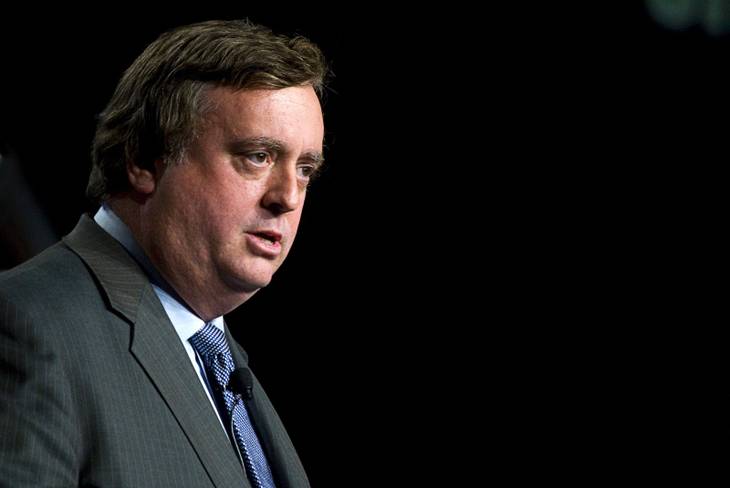Bondholders are ratcheting up pressure on Caesars Entertainment Corp., saying the debt-laden casino giant defaulted on the terms of possibly more than $1 billion in debt when it sold four casinos to an affiliate this year.
Las Vegas-based Caesars, which received the default notice Thursday, rejected the claim as "baseless" and said the company would "defend itself vigorously against any action" the creditors take.
Caesars did not say which bondholders filed the notice against subsidiary Caesars Entertainment Operating Co., nor did it explicitly say how much debt the creditors claim is at stake.
However, the lenders say they hold 30 percent of $3.7 billion in bonds that were issued in 2009, according to Caesars.
"We will not allow our company, our employees and the communities in which we operate to be held hostage by a minority of holders whose interests are contrary to the long-term health of the company," Chairman and CEO Gary Loveman said in a prepared statement today.
The creditors are alleging, in part, that Caesars violated the terms of the loans this year when it sold Bally's, the Cromwell, the Quad and Harrah's New Orleans to Caesars Growth Partners for $2.2 billion.
Formed last year to help the company pay off its debts, Caesars Growth is 58 percent-owned by Caesars Entertainment and 42 percent-owned by a publicly traded spin-off from Caesars, according to Bloomberg News.
Not only did Caesars not get fair market value for the hotels, the bondholders claimed this week, but the sale between the entities should not have been allowed in the first place.
The default notice comes two months after a law firm, representing unnamed bondholders, sent Caesars a letter saying the company was improperly shuffling assets among affiliates and subsidiaries, including with the proposed sale of the four casinos.
According to Caesars, the law firm claimed that its clients hold more than $1.85 billion in debt, and that lenders who hold an additional $880 million supported them.
Caesars has been drowning in debt since investment firms Apollo Global Management and TPG Capital took the company private in 2008, a $30 billion buyout that was heavily financed with borrowed money shortly before the national economy collapsed.
The company had a staggering $23.6 billion debt load as of March 31. At that time, it was on the hook for almost $2 billion in debt payments for the rest of the year and $3.3 billion in payments in 2015, according to a securities filing.
Meanwhile, losses are mounting. Caesars posted a $383 million first-quarter loss, compared to a $217 million loss a year earlier.
